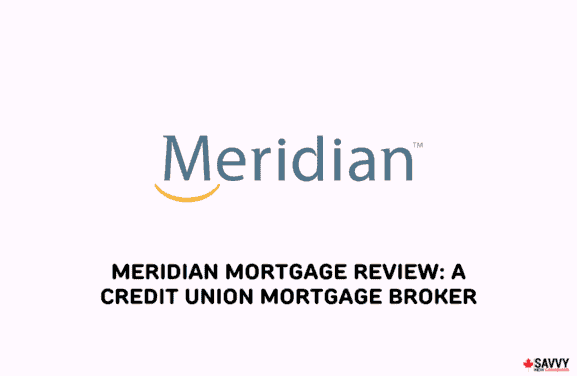When your mortgage term is approaching its end, you’ll have to make a few decisions. One of the options usually available to you is to renew your mortgage, and you can often do this early.
But what’s involved in an early mortgage renewal in Canada? Are there any penalties? Is it even the right option for you?
This guide looks at early mortgage renewals in Canada, including what’s involved, how they differ from mortgage financing, and the pros and cons to consider.
Key Takeaways
- Early mortgage renewal involves renewing your mortgage with your existing lender before the term ends.
- You can normally renew your mortgage up to 120 days before your term ends without penalties, but it can be longer.
- The process of renewing your mortgage early is straightforward.
- Don’t confuse mortgage renewal with refinancing, which are two different things.
What Does Renewing Your Mortgage Early Mean?
When you reach the end of your mortgage term but have not paid off your mortgage in full, you will usually have the option to renew it.
Early mortgage renewal is when you renew your loan before the term ends. You will have a scheduled renewal date, and renewing your mortgage early is simply renewing it before this date.
Your lender will usually contact you before your term ends to offer you a rate for a mortgage renewal. They often want you to continue your mortgage with them instead of switching to another lender.
Most lenders have a window of a few months where you can renew your mortgage early without any penalties. However, if you want to renew your mortgage before this window opens, it’s considered breaking your mortgage contract.
You can agree to a new mortgage rate and term if you renew your mortgage early. Sometimes, your new rate will be applied immediately; with other lenders, your rate will come into effect when the original term ends.
How Early Can You Renew Your Mortgage?
Different lenders will specify different early renewal options. How soon can you renew your mortgage? The standard time is 120 days before your term ends, and many large banks provide this option. This means there is no penalty for renewing your mortgage up to four months early.
Some lenders provide even longer. For example, CIBC allows you to renew your mortgage up to 150 days early, while others may provide up to 180 days.
Whatever the options available, you will receive a renewal notice from your lender at least 21 days before the term ends.
Mortgage Renewal Process
Renewing your mortgage is usually quite straightforward if you stay with your current lender.
You may be able to start the process online. For example, there is often an option to renew your mortgage in your online account, and you may simply be able to accept the agreement online and complete the renewal.
However, you will probably receive an early renewal letter from your lender. This is very common, and the offer may be slightly lower than their posted rate. You can simply accept this by signing the letter and sending it back.
Mortgage Renewal vs Refinance
Don’t confuse mortgage renewal with refinancing because they are two different things.
Mortgage Renewal
Mortgage renewal is what we have described above, where you reach the end of your term and decide to continue with the same lender at a different rate.
You could do this several times until the amortization period ends.
Mortgage Refinancing
Refinancing is where you renegotiate the terms, including the amortization period and loan amount.
It is often done to access some of the net worth of your home in a lump sum payment that you could spend on renovations or debt consolidation.
This is essentially a new loan application. As a result, it could lead to penalties like prepayment fees and fees for property value assessment.
Also, you must keep the amortization period when you renew your mortgage. When you refinance, on the other hand, you can extend this.
What is the Penalty for Renewing Your Mortgage Early?
Most lenders provide a period when they offer you the chance to renew your mortgage early without paying any penalties. So if your lender allows you to renew your mortgage early, you won’t have to pay.
Many lenders will allow you to do this up to four months in advance, sometimes even longer.
However, penalties will normally apply if you want to renew your mortgage even earlier. That’s because, in this case, you are essentially breaking your contract.
One reason you would do this is to switch to a mortgage with lower interest rates that would make up for the penalty fees.
Pros and Cons of Renewing Your Mortgage Early
There are several pros and cons involved in renewing your mortgage early. Consider these carefully before making your decision:
Pros
- By renewing your mortgage early, you could get a lower rate in an economy where rates are generally rising.
- You can enjoy peace of mind by locking in a new rate early, and you will know how much you are paying for the coming years.
- Renewing your mortgage early can save you the hassle. Just return the letter and keep paying your mortgage; there’s no need to research the market and find out about other rates.
- If interest rates have dropped, you could renew your mortgage early and enjoy the new rate earlier. However, this depends on the lender because some lenders will only apply the new rate after your original mortgage term ends.
Cons
- You could end up paying more. It’s unlikely your lender will offer you the best rate on the market, and switching to another lender could significantly reduce your interest payments and mortgage payments.
- It could be a more expensive option if you lock in a rate when you renew your mortgage early, and rates keep going down.
Featured Mortgage Offer
Neo Mortgage

On Neo Financial’s website
- Compare mortgage rates across several lenders
- Access to competitive rates and online applications.
- Available Canada-wide
- Accepts a wide range of credit scores
Should I Renew My Mortgage Early?
Whether you should renew your mortgage early or not is something that deserves some careful consideration.
You will probably have to renew your mortgage several times over the amortization period. But whether to do it early or not depends on several factors.
The first thing to do is compare the current mortgages on the market 120 days or so before your mortgage term ends.
Explore other mortgages and see what’s available. Then, you can switch to one without any penalties at the end of your mortgage term.
You may find that the rate offered by your current lender does not match the rates you can find elsewhere. In this case, it would not be worth renewing your mortgage early because you would be unnecessarily locking yourself into a more expensive mortgage.
Mortgage lenders can hold your rate for up to 120 days. So you could find a better rate and sort out the paperwork so it is ready to go when your term ends.
However, if you take out a new mortgage rather than renew your existing mortgage. Other costs may be involved, as well as more paperwork, hassle, stress tests, etc. You may simply not want to go through all that again, even if you could save money.
In an economy with increasing rates, it could give you peace of mind to renew your mortgage early. If you are happy with the rate and you think it will increase, you can lock it in months before your new term begins and forget about it.
There are other considerations. You may want to get access to funds to renovate your property, and mortgage refinancing may be the better option here.
When you get the renewal information, consider the term, principal, interest rate, and payment amounts. If you’re happy, go ahead and sign it. But it never hurts to spend some time shopping around.
FAQs
The earliest you can renew your mortgage without penalties is determined by the lender. It is normally somewhere around 120 days, but it can be more.
Yes, you can normally renew your mortgage up to 120 days or even longer before the maturity date, depending on your lender’s rules.
If you switch to a different lender, you will be applying for a new mortgage rather than renewing your existing one. If you do this early, you will be breaking your current mortgage contract, which will involve paying penalties.
Yes, this is something that your bank can do. Your situation may have changed, and it’s important to be aware that a lender does not have to renew your mortgage.
Related:



